Weeknotes 10/03/2023
Another busy week! Lucinda and James started their 6 month ‘Service Design in Practice’ course with a face-to-face get together at Bizspace in Cardiff last week.
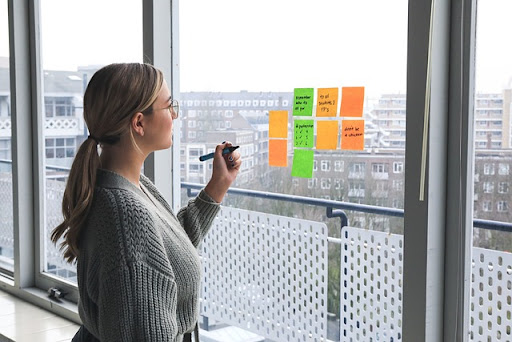
They had their first one-to-one coaching session with the course tutors this week.
Organising our woodlands and forests landing page
James has been working on analysing the results of a card sorting exercise to help shape our Woodlands and forests landing page.
Card sorting lets users drag and drop web page titles into categories that make sense to them. Depending on the type of card sort, they can then name the categories.
This helps us understand how our users view tasks and information, and the language they use to describe these processes. It’s all part of our work to be user-focused:
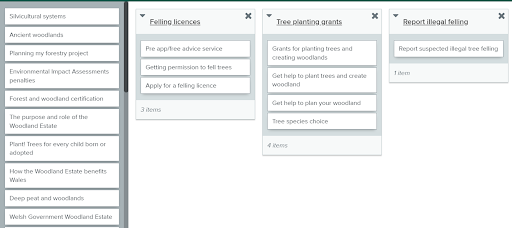
So far we’ve had 63 responses to the card sorting exercises from:
- NRW staff
- Woodland planners
- Forestry agents
- Forest managers
- Contractors
- Landowners
- Ecologists
- Nature trusts
Key insights from Round 1
In Round 1 we ran an open card sort. This lets users create and name their own categories. 25 users completed the activity and from those we found the following insights:
- Users grouped cards in a similar way to our project team
- A new grouping emerged about ‘Pests, diseases, and tree health’
- Some cards belonged to more than one group
- Users didn’t know where to group several cards, so they ended up in catch-all categories like ‘General advice’ or ‘Nice to have’
- We needed to make the card titles more task-focused to help users understand their purpose
- We needed to speak to more landowners
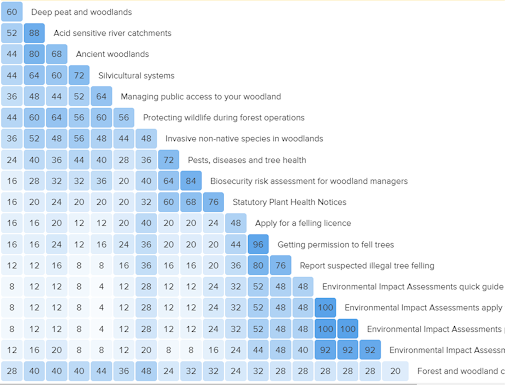
Only one of the 25 participants was a landowner. We needed to make sure the voice of landowners was more prominent in the next round. Otherwise the content grouping could develop into an expert or ‘insider’ view of woodlands and forests.
Actioning Round 1 findings For Round 2, we took on board the findings from the first round. We used the felling licence application spreadsheet to recruit more landowners. As of 08/03/23, 30% of the participants (12) were landowners.
We also reworked the card titles to make them more descriptive and task-focused to give users the context that was lacking in Round 1:
- ‘Deep peat and woodlands’ became ‘Assessing and restoring deep peat’
- ‘Urban trees’ became ‘Compare tree cover in urban areas in Wales’
- ‘Pests, diseases and tree health’ became ‘Identify, report and manage tree pests and diseases’ etc
This time we ran a closed card sort, where users drag cards into categories we’d already named:
- Services
- Planting new woodlands
- Regulation and guidance
- How we manage woodlands
- Forestry reports and statistics
We proposed a content grouping based on ‘doing things’ versus ‘guidance’. Some of our cards helped users complete a task, e.g. ‘Apply for’ or ‘Check…’. We saw these as ‘Services’. Other cards were guidance to help users do something. We called this category ‘Regulation and guidance’.
We wanted to test how users would respond to this idea:
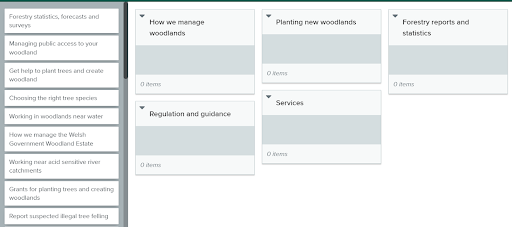
Key insights from Round 2
We’ve had 39 responses to Round 2 as of 08/03/23 and we found the following insights:
- Users grouped cards in a similar way to us for 4 of our 5 proposed categories
- There was closer agreement between users than Round 1
- Users ignored our ‘‘Services’ category
- There was no real difference between how forestry professionals and landowners grouped the cards
By testing in Round 1 and reworking the content based on those findings, we’ve already seen improvements in Round 2:
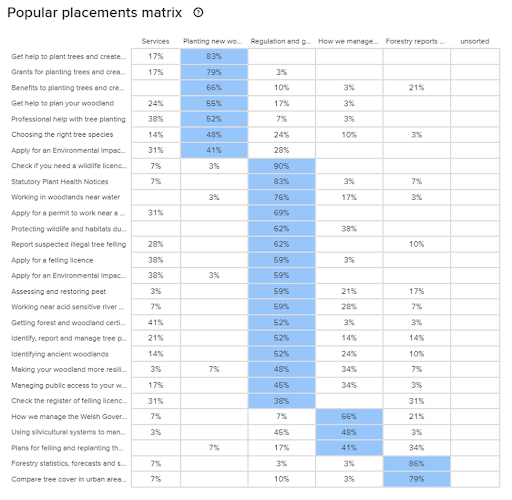
We need to decide whether we reframe or abandon the idea of ‘doing things’ versus ‘guidance’. It was clear that the users in Round 2 didn’t understand the purpose of the ‘Services’ category.
One user left a comment:
“Services does not make sense as a heading to the private sector”
Instead of grouping cards like ‘Apply for a felling licence’ under ‘Services’, users tended to group these with ‘Regulation and guidance’ to form one giant category. They then grouped the ‘wrong’ cards under ‘Services’ (wrong because these cards were signposts to other organisations, rather than services that NRW offered, like ‘Forest certification’ and ‘Professional help with tree planting’).
We also reflected that it might confuse users that ‘doing’ cards like ‘Apply for a permit to work near a river’ were both a service and regulation. So they could conceivably go in either category, particularly if you’re a professional who thinks in terms of meeting regulatory requirements.
It’s good that we found out about this issue in an early testing stage. We can iterate and improve.
Next steps for woodlands user research
Our NRW colleagues are sharing the Round 2 card sorting exercise with their contacts to get more participants and more input from users we haven’t contacted yet.
We will rework the card and category names and retest with a hybrid card sort. This method uses some pre-set categories but lets users add and name extra categories.
We will also do some user research interviews to walk people through pages on the test website. We can then go into more detail about what people think about category names and arrangements. This will help validate whether ‘Services’ versus ‘Regulation and guidance’ makes sense to people in the context of a real landing page.
James shared the key messages from the card sorting rounds in our show and tell last week. He also met with subject matter experts this week to talk through the more in-depth insights.
Other stuff we’ve been doing
- Lucinda and James met with Joseph Smith, NRW’s new Talent and Acquisition Team Leader, this week to discuss user research findings about our recruitment process.
- Phil, Sam, Shaun, Laura and James met for a ‘content crit’ on Wednesday. These sessions are an opportunity to share content design challenges and get constructive feedback from colleagues.
- Sophie is hard at work getting the corporate plan ready for publication.
- Sam, Laura and Lucinda have started experimenting with creating a ‘Check if you are allowed to use our land’ service on SmartSurvey
- Kim and Sam have been continuing the great work on waste forms mentioned in last weeks weeknotes